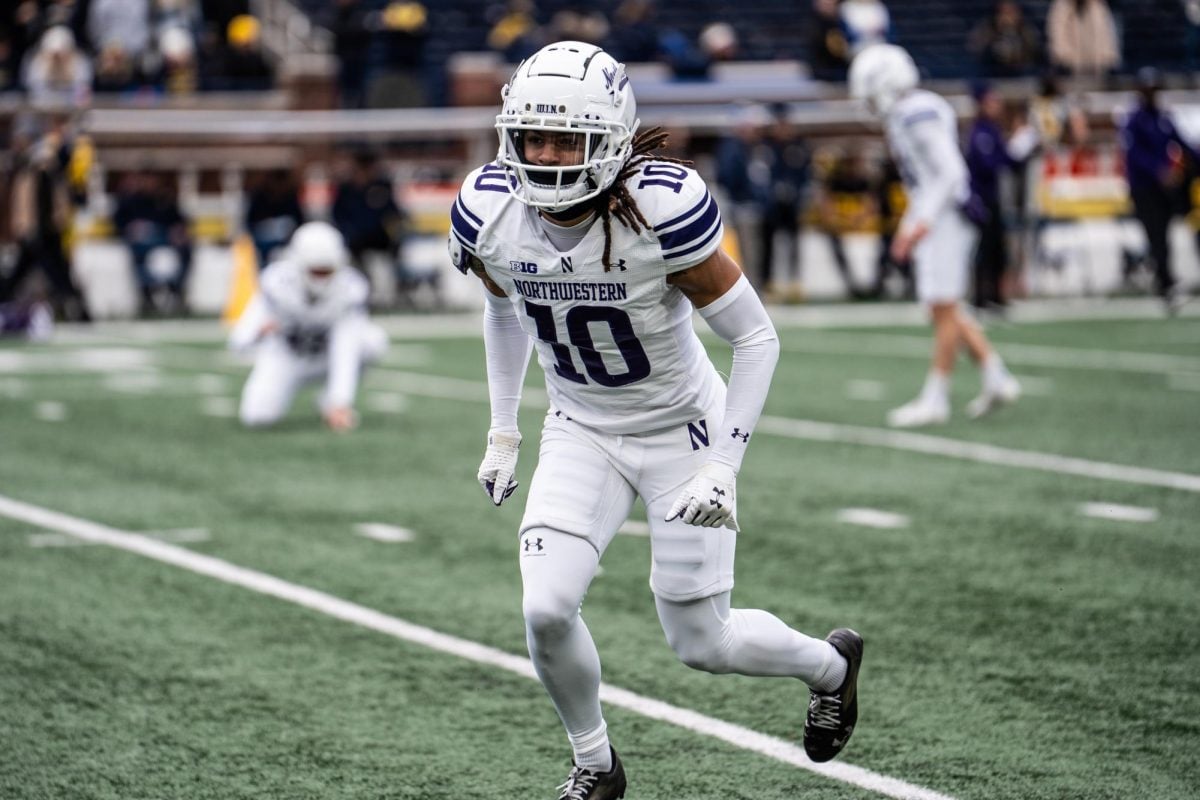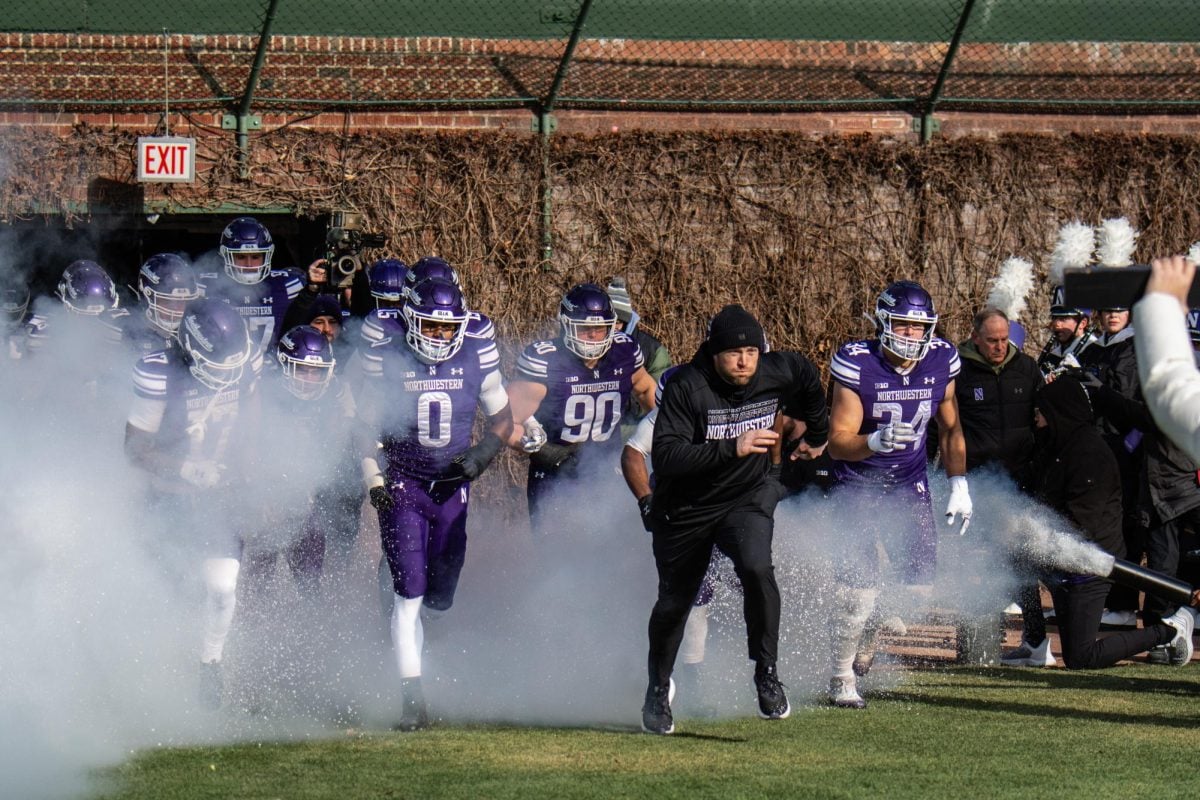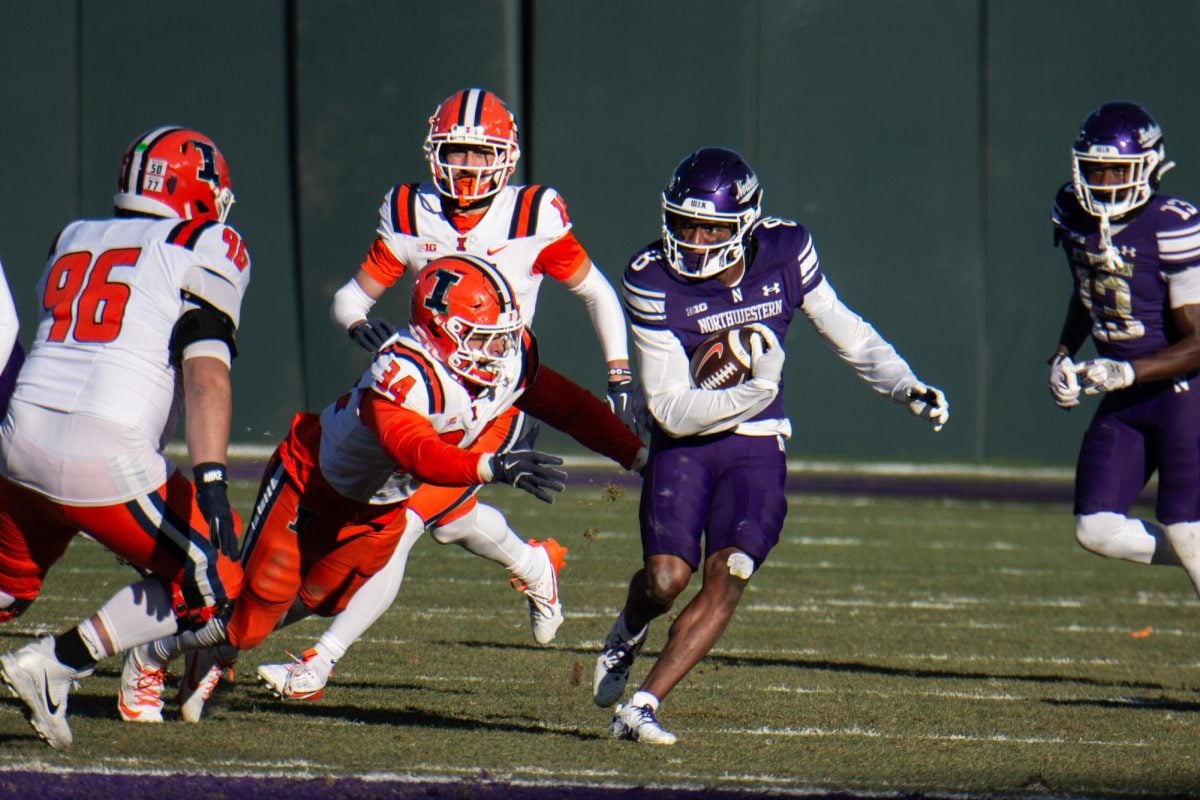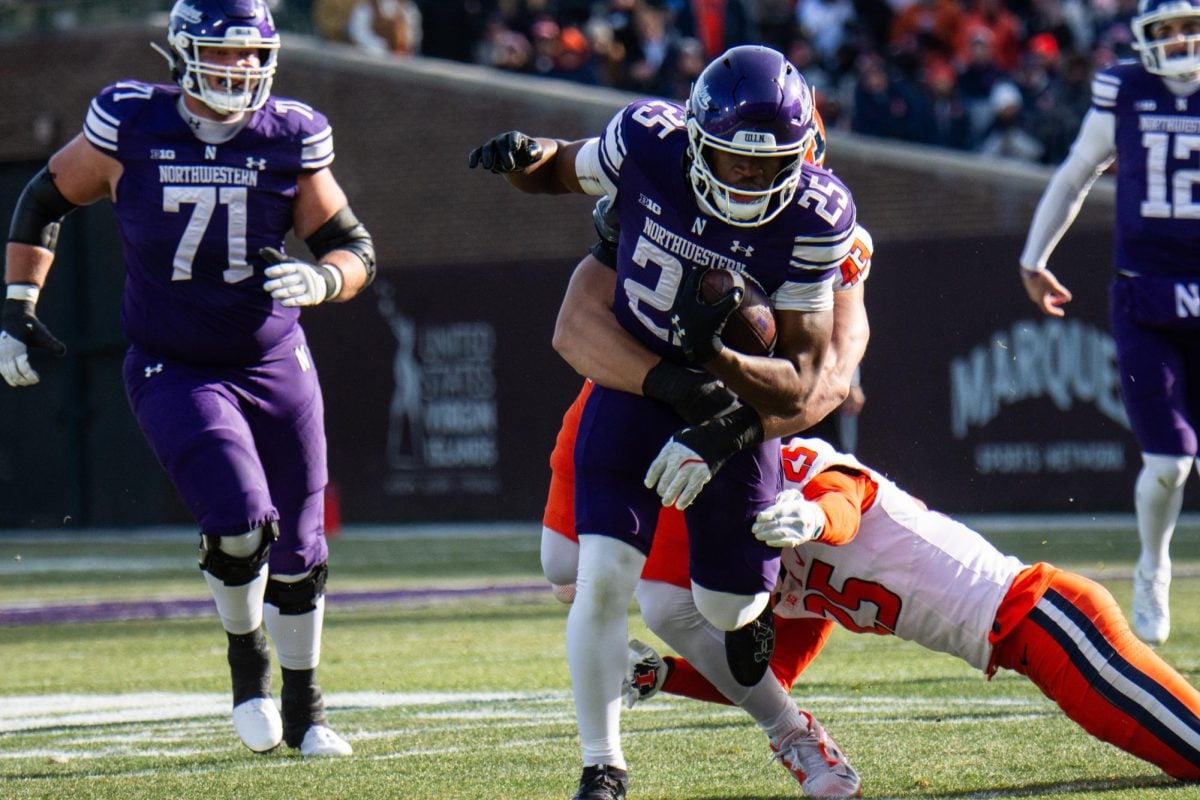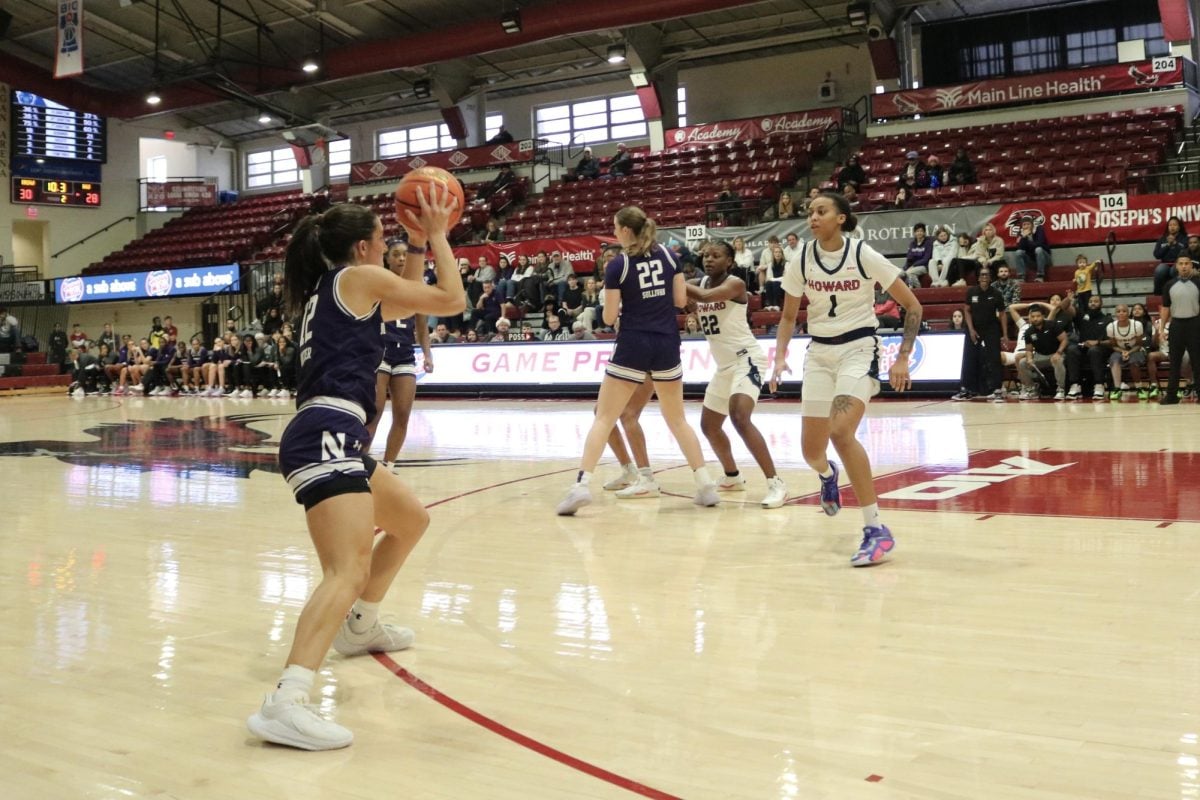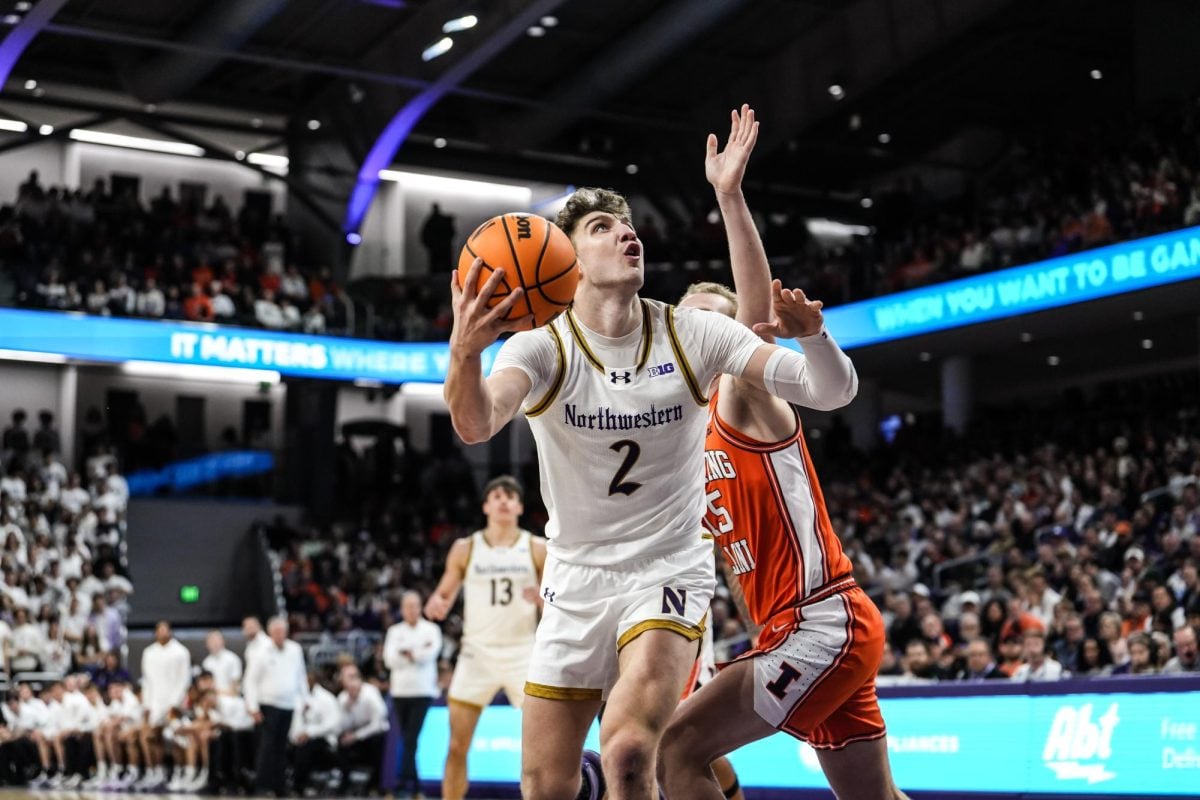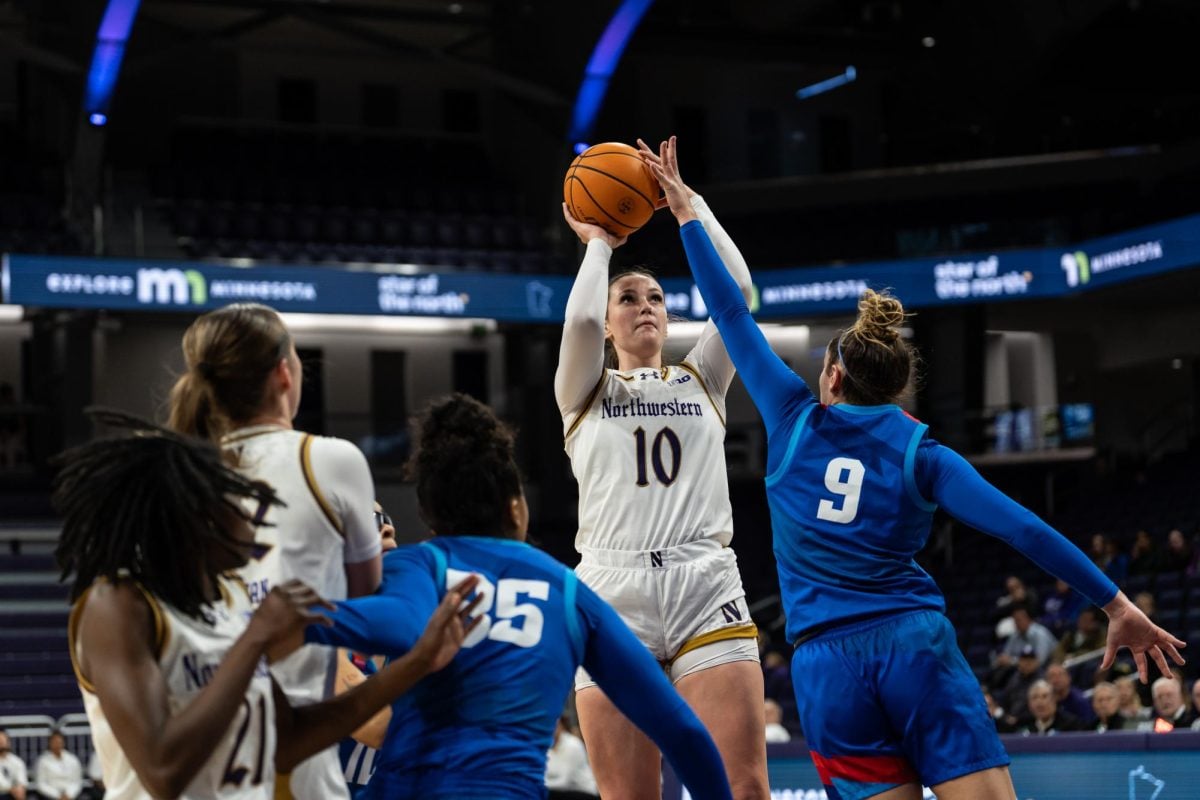CHAMPAIGN – After Northwestern’s 24-14 road loss to Michigan State on October 17, I lamented the dink-and-dunk offense was ruining any chance of the Wildcats finding success this season.
Since then, all NU has done is stage the largest comeback in school history against Indiana, hang tough with ranked Penn State despite playing its backup quarterback and upset then-No. 4 Iowa, a team with national championship aspirations, on the road.
And now this: A 21-16 win at Illinois, fueled by two 25-plus-yard strikes from Mike Kafka to Zeke Markshausen near the goal line and a 52-yard bomb from Kafka to Andrew Brewer.
The Cats had this type of explosive offense in them, as seen during their comeback against the Hoosiers. But to see a vertical air strike while their backs aren’t against the wall is something novel this season.
“Guys went and made plays, four or five of us just kept on dunking them and let that defense get really aggravated,” Kafka said. “That way we can get more of a vertical game going. When we get the defense coming down, then we can start putting it over top. That was the gameplan going into this week.”
The Cats didn’t abandon the dink-and-dunk completely, but even their short passes were better than in weeks prior. Kafka’s average yards per completion in the win was about 13. Take out the 52-yard pass to Brewer, and his average was still 11.5. By comparison, against Michigan State and Minnesota, Kafka’s average was 8.5 and 9.5 yards, respectively.
When did this willingness to incorporate a vertical passing game develop? Is it that that Kafka can no longer fall back on his legs to pick up yards? Is it that Scott Concannon and Arby Fields were able to get yards on the ground?
I don’t care what triggered it – I just want it to continue. An offense wholly based on short-yardage passes creates a game of attrition. It can work against weak teams, but stronger teams will wait it out and punish mistakes. For proof, check how many teams above .500 the Cats have beaten: one.
“We’re a big underneath team right now, but we want the defense to prepare for (horizontal passes),” Kafka said. “That’s good, so we can keep on getting more vertical routes.”Kafka’s statement is obvious but true. With the win over the Illini, NU is guaranteed to make a bowl game. But there is still the final regular season game next Saturday against No. 20 Wisconsin. Then the bowl game will be against a team of equal caliber.
In the middle of the season, the Cats had no rushing attack. Typically that’s called being “one-dimensional” on offense. But they were less than that – they were half-dimensional. Not only were they inept at running the ball, but their passing attack was composed entirely of short routes.
Suddenly, everything is clicking for the Cats on offense, and at the perfect time. While not spectacular, the running game is no longer something opposing defenses can ignore. Arby Fields ran for 50 yards on nine carries, and Scott Concannon averaged a respectable 4.1 yards per carry.
“We’ve been working on that all year, getting the right guys in there, and we’ve got a really good rotation going on right now,” Markshausen said of the ground attack. “We can’t ask for much more, just keep rotating them in. Our line is doing a good job blocking for them.”It’s unclear when this metamorphosis happened, but Champaign, Ill., was the site of the two-dimensional offense’s coming-out party. The Cats did what they needed to on the road against an inferior opponent to guarantee themselves a spot in a bowl game and earn the inaugural Land of Lincoln Trophy in the process.
But it remains to be seen if this offensive prowess can carry over against elite teams. The Badgers’ two losses have come against Ohio State and Iowa. And with the way the way NU played against Illinois, Bret Bielema is certain to shore up his team’s vertical passing defense.
With representatives from low to high Big Ten bowl destinations – Little Caesar’s Bowl to the Alamo Bowl – watching, it will be important for NU to not just win, but show it is an exciting team people will want to watch.
That means ditching its reliance on the dink-and-dunk for good.
Deputy sports editor Brian Chappatta is Medill junior. He can be reached at [email protected].

